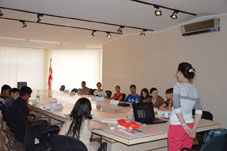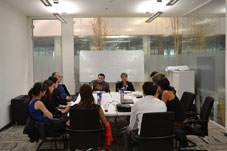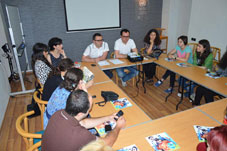
CiDA implements project for juvenile offenders
By Messenger staff
Friday, October 18
The Civil Development Agency (CiDA), with the support of the European Union (EU), has been working on the project "Support for Juvenile Justice Reform in the National Minority Communities of Kvemo Kartli and Samtskhe-Javakheti" since November 2012. The project is dedicated to reforming juvenile justice and attempts to help juvenile criminal offenders re-socialize and re-integrate into society.
The project aims to strengthen the role of civil society to support human rights protection and the implementation of democratic reforms in the juvenile justice sphere.
Project manager Nino Demetrashvili told The Messenger that since 2010, CiDA has been cooperating with the National Probation Agency.
“With the support of the Ministry of Justice a project 'Useful Activities for the Society' was launched in Rustavi in 2012, which was followed by a more wide-scale project 'Support for Juvenile Justice Reform in the National Minority Communities of Kvemo Kartli and Samtskhe-Javakheti'.” Demetrashvili said.
According to Demetrashvili, the National Probation Agency, the Kvemo Kartli and Samtskhe Javakheti Regional Bureaus, local NGOs and mass media representatives are also involved in the project.
Demetrashvili says it is very important to raise public awareness regarding juvenile justice issues. She stressed that one of the aims of the project is to highlight problems in juvenile justice, prepare recommendations and deliver the message to the appropriate government bodies. The project also includes an interesting initiative My Elder Friend that asks older people to have a positive influence over young people.
Avtandil Kenchadze, Head of the National Probation Bureau of Kvemo Kartli, spoke about the importance of the project and stated that it would positively influence juvenile offenders by guaranteeing a better future and reducing chances of repeat offences.
“Implementing similar kinds of projects is significant for juvenile offenders to free themselves from criminal habits and to re-socialize and re-integrate in society.” Kenchadze stated.
According to one 17-year-old juvenile offender, this project enabled him to believe in himself again.
"As part of the project I participated in various activities including personal skills trainings, excursions, etc. During the last two years I met many young people my age through the project. All of them had a positive influence on me and the project has given me a chance to plan my future better." the juvenile said.
The 14-month project comes to an end in January, 2014.




